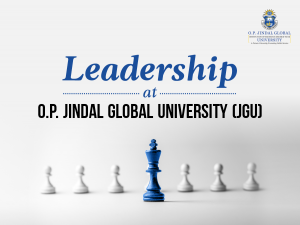“Who looks outside, dreams; who looks inside, awakes.” – Carl Jung
The founder of Analytical Psychology defined some of the best-known psychological concepts such as the collective unconscious, the psychological complex, introversion, and extraversion. We find ourselves leaning on these concepts – developed in the past century – in our daily lives. Yet, psychology is often referred to as a “new” science. As the Russian academic P.D. Ouspensky pointed out, it is, in fact, one of the oldest sciences, which unfortunately in its most essential features, is a forgotten science. In addition to being often overlooked, there is a stigma attached to mental illness, which has pushed mental health on the backburner. Now more than ever, it is time to involve and train young students to contribute to the field of psychology and put the focus on mental health front and centre.
According to the Institute of Health Metrics Evaluation’s (IHME) Global Burden of Disease data, around 13% of the global population – roughly 971 million people around the world – suffers from some kind of mental disorder. There is a pressing need to develop a new generation of thought leaders in the fields of psychology and counselling.
B.A. (Hons.) in Psychology at JGU: A programme to push the boundaries of education & careers in psychology & related fields
In 2020, O.P. Jindal Global University (JGU), India’s No. 1 private university as per the QS World University Rankings 2021, launched its 10th school – Jindal School of Psychology & Counselling (JSPC) – in response to the growing need to understand human psychology and mental health, and to encourage teaching and research in these fields. JSPC is a research-led, future-focused school that aims to have a big impact on teaching and research in the broader field of psychology and behavioural sciences.
“Our goal is to provide a world-class interdisciplinary education to students, enhancing their postgraduate education and employment opportunities,” says Professor (Dr.) Derick Lindquist, Vice Dean, JSPC. During the course of the three-year undergraduate programme students receive comprehensive education in psychological theory with immense exposure through research and practice.
At the end of the programme, they can choose from a multitude of career pathways that include the education sector, research, counselling, industry, and healthcare. The social work sector offers rewarding positions as programme officers and welfare officers with NGOs and development organisations. Students can also seek careers in consulting and as behaviour analysts in the wider industry.
SIX TENETS OF A CUTTING-EDGE PSYCHOLOGY PROGRAMME
- Research opportunities that will equip you to make meaningful contributions to the field
Active participation in research and experimentation in the field of psychology and behavioural science is the key to understanding human mental processes and behaviour. The B.A. (Hons.) in Psychology programme at JSPC encourages research by students through its state-of-the-art infrastructure and guidance from faculty members actively engaged in research work themselves. Moreover, JSPC has been established on the strong disciplinary foundation of Jindal Institute of Behavioural Sciences (JIBS). The research and innovation driven institute has undertaken several crucial research projects for the understanding of human behaviour.
Four research centres of JIBS – Centre for Victimology and Psychological Studies (CVPS), Centre for Leadership and Change (CLC), Centre for Community Mental Health (CCMH), and Centre for Criminology and Forensic Studies (CCFS) – enable students to pursue their specific research interests. JSPC’s Experimental Research Laboratory, and ‘E-Cog: Emotion and Cognition Psychology Research Centre’, established by JSPC and Jindal School of Liberal Arts & Humanities, further promote research-based education for students.
In the final year of the undergraduate programme, students may be selected to develop a research paper/honours thesis. It inculcates the discipline and drive for research among students, who grow into knowledge creators of tomorrow.
Based on a scientific foundation, the study of psychology requires learners to become adept with a variety of tests, assessment tools, experiments and so on. This toolkit is a must-have for psychology and counselling professionals. Putting theory to practice in laboratory settings every step of the way gives JSPC students the opportunity to become well-versed with various methods of psychological testing. Coupled with the freedom to engage in research work at the undergraduate level, graduated of the programme can emerge as well-rounded and highly-skilled professionals ready to take on a variety of future prospects.
- Multidisciplinary curriculum for a wider perspective
The ethos of psychology as a discipline lies in its plurality and diversity. “There is a need to understand the field of psychology and counselling in a broader scope and context, especially since psychology is required in multiple fields and, hence, becomes an interdisciplinary branch of study,” says Professor Dabiru Sridhar Patnaik, Registrar, JGU.
For instance, finding answers to questions of how society impacts human psyche or how political thought influences behaviour require a deeper understanding of themes of politics, sociology, and so on. Every disciplinary perspective lends greater meaning to a psychologist in-the-making, sharpening their ability to understand, explain, and predict human thoughts, feelings, actions and behaviour.
This interdisciplinary dimension of the study of psychology within the larger context of humanities and social sciences is one of the founding principles of JSPC. Students of the B.A. (Hons.) in Psychology programme benefit from the innovative interdisciplinary curriculum at JGU. They can choose from over 100 electives listed across 10 schools at JGU, and thrive on interdisciplinary peer learning.
“Students will be encouraged to select from a large and customisable set of courses based on their specific interests,” adds Prof. Lindquist. It not only offers a broader perspective for students in their professional journeys but can also open diverse career paths for them.
- Dynamic and customisable learning, with options for specialisation
The limitations of a standardised ‘one size fits all’ education comes further under scrutiny in the purview of psychology. In a field that itself seeks to understand the differences in people’s minds and behaviours, a standard approach to education that overlooks individual differences has its obvious drawbacks. Each student is unique. Therefore, giving learners the freedom to tailor their coursework as per their unique interests is important.
The dynamic and customisable course curriculum at JSPC offers students a chance to align their learning experience with their academic and professional goals, as well as their diverse personal interests. While the first two years focus on establishing strong roots in the foundations of psychological theory, research, experimentation and application, the final year allows for a specialisation. Based on their interests and professional aspirations, students choose one of Three Tracks of Study:
- Experimental/Forensic: Designed for students interested in a research career or work in the criminal justice system
- Counselling/Education: Designed for students interested in counselling or clinical psychology, or work in the education system
- Industrial/Organization: Designed for students interested in working in the world of business or industry
Students are free to choose from a wide range of track-specific electives in the final year, in addition to interdisciplinary electives at different schools throughout the first two years. This degree of customisation allows for a very personalised learning experience. Students take charge of their own learning to carve their own futures.
- International exposure for future global professionals
As diverse as the field of psychology is, it is also a common thread that binds people across continents and cultures. Professionals with degrees in psychology can find career opportunities around the world. However, its foundation is laid through the global exposure they get during the course of their undergraduate programmes. JSPC is committed to seeking out international collaborations and exchange programmes to enhance the learning experience of students.
Existing collaborations with renowned institutions like Queen Mary University of London, University of Zurich, National Taiwan University, Western Sydney University, and Quinnipiac University are leveraged to curate short-term study abroad and student exchange programmes, that offer international exposure to future global professionals.
- Internship opportunities in domestic and international arenas
To develop a strong functional knowledge of the dynamic field of psychology, it is absolutely vital for students to get hands-on training during the course of their programmes. The B.A. (Hons.) in Psychology programme at JSPC revolves around experiential learning through life-skill-based courses and real-world exposure and training. The Office of Career Services at JGU also plays a crucial role in making domestic and international internship opportunities available to students. The Academic Council on the United Nations System, World Wildlife Fund, International Society of Criminology, Mental Health Foundation, and Navjyoti India Foundation are just some of the organisations where students can gain hands-on exposure through internships.
- Access to the ecosystem of contemporary knowledge in the field
With growing awareness about mental health, the field of psychology is evolving at a fast pace. Students pursuing psychology degrees need to stay abreast with the latest developments in the domain. The B.A. (Hons.) in Psychology programme facilitates an environment where students have access to contemporary knowledge through a strong faculty team, which is at the top of its game. “Our faculty members will employ experiential and goal-based learning strategies based on a course curriculum informed by the latest theories and data across disciplines of psychology,” says Prof. Lindquist.
Students of the programme can also get vital exposure to the best practices around the world through interactions with renowned personalities in the field. In addition, workshops, seminars, talks, and training programmes conducted by JIBS provide robust platforms for knowledge sharing.
Through these distinctive offerings, the B.A. (Hons.) in Psychology programme at JSPC aims to educate the psychologists of today, who will enrich and improve the world of tomorrow.



